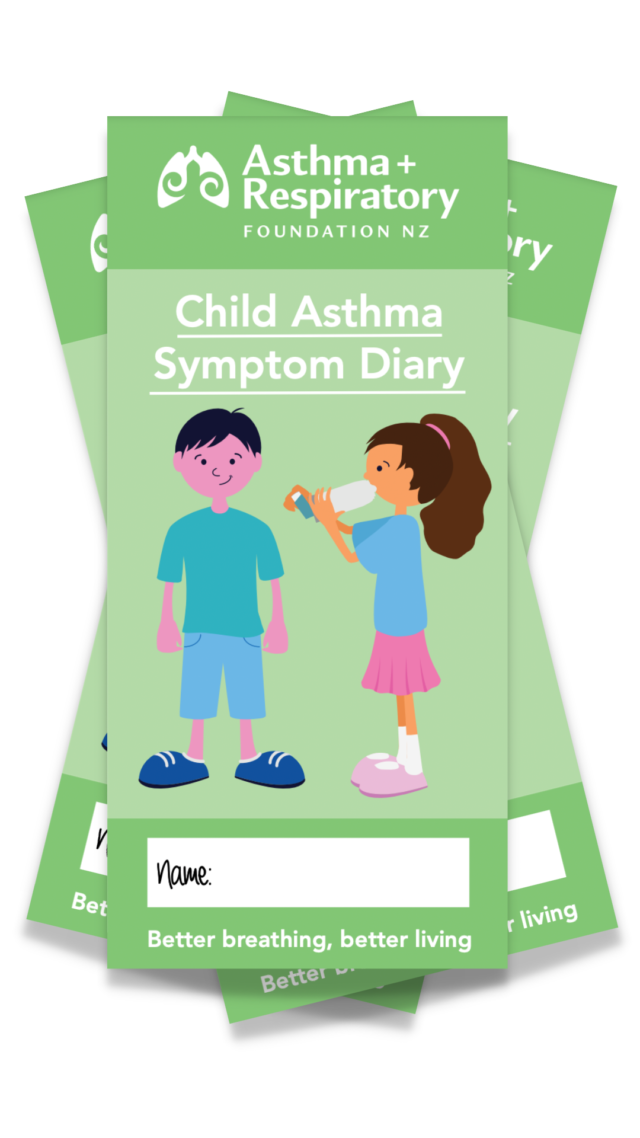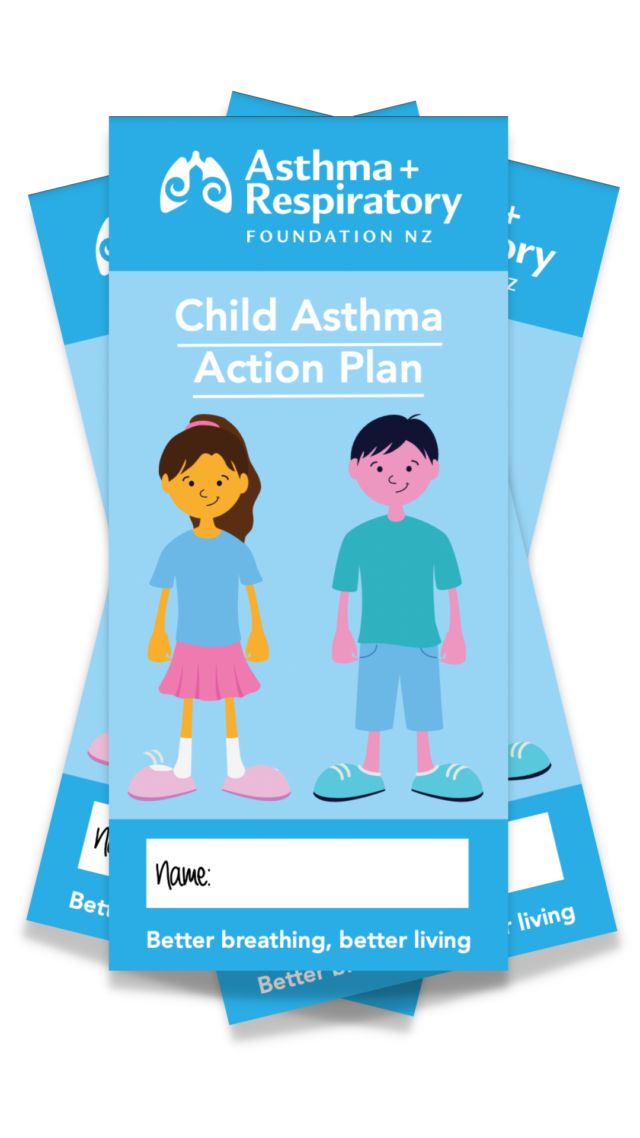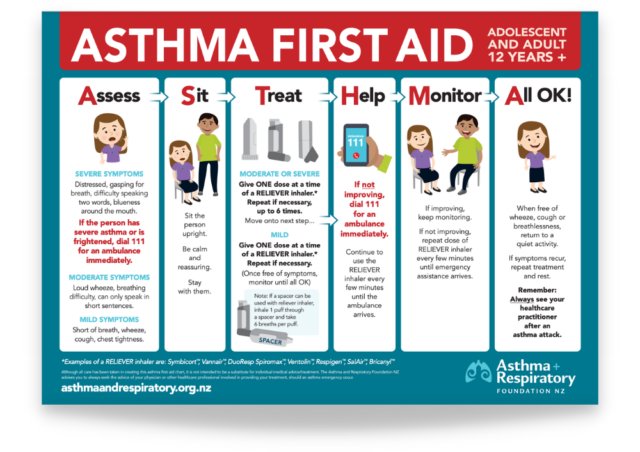There are a number of things that you can do to help your loved one manage their asthma:
Asthma action plans can help you recognise and respond to worsening asthma symptoms using your prescribed asthma medicines.
Research shows that people who follow asthma action plans have better control over their asthma.
Download an asthma action plan and complete it with your healthcare practitioner. It can be provided in print or digital form, and is designed to be easily shared with other family members, whānau, school, work, sports coaches and others.
Parents and caregivers of children with asthma should make sure that their child has a child asthma action plan and uses their preventer medications daily as prescribed, rather than just relying on their reliever puffer when their asthma gets bad.
Keep your immunisations up-to-date
Keep your immunisations up-to-date by visiting your local healthcare provider or community pharmacy for your annual influenza (flu) vaccination and vaccination against COVID-19.
See the latest Ministry of Health guidance for immunisation against COVID-19.
See the latest Ministry of Health guidance for information about the annual flu vaccine.
Become smoke and vape-free
The best thing you can do for the respiratory health of your loved ones is to quit smoking and vaping. If you want assistance to stop smoking, visit the Quitline website. For information on second hand smoke click here and for tips on making your home and car smokefree click here.
The long-term health risks of vaping are not yet known. But research so far has found that vaping and second-hand vaping can irritate the lungs, increase coughing and worsen symptoms of respiratory conditions like asthma. Many vapes contain nicotine, including products that claim to be nicotine-free. Nicotine is highly addictive and impacts brain development in young people and can cause problems with concentration and mood. Vapes also contain additives and flavours which have been approved for use in food products, but haven’t been tested if they are safe when inhaled into the lungs. For more information on vaping, go to our Don’t Get Sucked In website.
Create a healthy home environment
Living in a warm and dry environment is good for everyone, but for people with a respiratory condition it is vital for them to stay well. Many New Zealand houses are damp and cold which leads to more illnesses which aggravate respiratory conditions. Making your home dry, warm and pollution-free will make it healthier and save you money and energy. See here for more information on healthy homes, including how you can make your home healthy.
Health Professionals who can help
If you or a family member has asthma, in addition to your healthcare practitioner/specialist, asthma educator or pharmacist, a number of people and organisations are available to help with your condition.
For friendly, local, specialised support and information, contact an asthma educator at one of our regional asthma societies throughout New Zealand. They can provide you with information and resources to assist you in managing your condition, including one-on-one assessment, education, advice, and support. Their services are either free or available for a small charge.
A physiotherapist can teach techniques to control breathing patterns to manage breathlessness and to clear phlegm from the chest. They can also give advice to improve fitness and endurance, and boost immunity levels. Read the information from Physiotherapy NZ about how physiotherapy can help people with asthma, or visit physiotherapy.org.nz to find a local physiotherapist.
A dietitian can provide education about the best foods to eat for people with a respiratory illness, based upon their medical condition and individual needs. Your healthcare practitioner can refer you to a dietitian.
Visit the New Zealand Dietetic Association (NZDA)’s website dietitians.org.nz to locate a dietitian in your area.
An occupational therapist can teach people easy ways to do basic daily tasks that become more difficult for people who are unwell. Speak to your healthcare practitioner for a referral to an occupational therapist.





